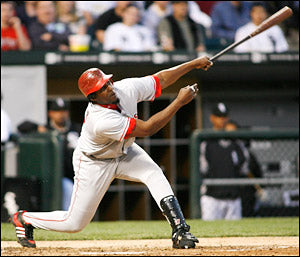When it comes to coaching baseball or softball, one of the biggest challenges that coaches face is dealing with players who are deemed as "uncoachable". These players can be frustrating to work with because they are often seen as stubborn, resistant to change, and unwilling to take feedback from their coaches. However, what if I told you that the key to unlocking these players' potential lies in helping them coach themselves?
Research shows that the trait of agreeableness is linked to the ability to receive feedback and take direction from others. Low agreeableness, on the other hand, can lead to difficulty in accepting feedback and following direction. While this may seem like a difficult obstacle to overcome, it is important to remember that players with low agreeableness can still improve. However, the traditional coaching approach may not be the most effective way to reach them.
Instead, coaches can help these players to develop their own sense of self-coaching by guiding them towards self-reflection and self-analysis. By encouraging players to reflect on their own performance and identify areas of improvement, coaches can help them to take ownership of their development and become more invested in the process.
One way to do this is by asking players to watch footage of their own performance and identify areas for improvement. By doing so, the player is taking an active role in their own development and is more likely to take ownership of the feedback provided. Coaches can also present them with information collected through technology such as sensors, wearables, and video analysis to help players have a more objective view of their performance.
Another way to help players with low agreeableness is to have them set their own goals. This can be done by asking them what they want to improve on and what they think they need to do to achieve their goals. By having players set their own goals, they are more likely to be invested in the process and take ownership of their development.
It is also important for coaches to give feedback in a way that is constructive and specific. Instead of simply telling players what they did wrong, coaches should explain why it is important to make a change and provide examples of how to do it correctly. This approach can be more effective than simply telling players what to do because it helps them to understand the reasoning behind the feedback and apply it in other situations.
Of course, every player is unique, and what works for one may not work for another. However, by focusing on individual player needs and developing strategies that work for them, coaches can help even the most challenging players to improve and reach their potential.
Another challenge that coaches face is dealing with disorganized players. These players can struggle with time-management, forgetfulness, and lack of focus. However, rather than simply telling them to "get their act together", coaches can help these players to create structure in their lives.
One way to do this is by encouraging players to write down their commitments and responsibilities. By keeping a schedule and prioritizing tasks, disorganized players can develop better time-management skills and become more reliable team members. Additionally, coaches can help players to create an environment that sets behavioral parameters, such as establishing a specific place for equipment or setting rules for punctuality and attendance.
It is also important for coaches to communicate expectations clearly and consistently. This includes setting clear goals for the team as well as for individual players, and communicating those goals regularly. This helps players to understand what is expected of them and what they need to do to meet those expectations.
Another important aspect of coaching disorganized players is to create a positive and supportive team environment. This includes encouraging players to support and help each other, and praising them for their successes. When players feel supported and valued, they are more likely to be motivated and focused on improving their performance.
By helping players to create a structured routine, coaches can help them to establish behavioral parameters that guide their actions both on and off the field. This can involve creating a schedule for practices, games, and other commitments, as well as establishing clear expectations for behavior and attitude.
Ultimately, the key to coaching "uncoachable" players is to approach them with empathy and understanding. By recognizing that every player is unique and has their own challenges to overcome, coaches can create a supportive and collaborative environment in which all players can thrive.
By helping players to coach themselves and creating structure in their lives, coaches can empower even the most challenging players to reach their full potential. And by doing so, they can not only help their team to win games, but also to develop as individuals and become successful both on and off the field.








